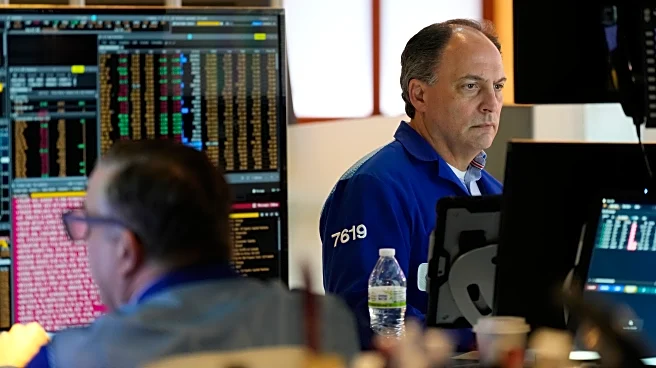What's Happening?
Nathan Kilcourse, a physical education teacher at Endeavour Academy's upper school in Daybrook, Nottinghamshire, is preparing to break a Guinness World Record for the fastest marathon run by a man with
type 1 diabetes. Diagnosed at 19, Kilcourse has been training for 13 weeks, including participating in the Robin Hood Half Marathon, to surpass the current record of 2:30:09 set by Daniel Clarke at the TCS London Marathon. Kilcourse's endeavor is not only a personal challenge but also a motivational effort to inspire young people to overcome life's obstacles, regardless of their health conditions. He is raising funds for Diabetes UK, aiming to collect £1,000, and emphasizes that having diabetes should not limit one's life choices.
Why It's Important?
Kilcourse's attempt to break the marathon record is significant as it challenges stereotypes and misconceptions about living with diabetes. By aiming to achieve this feat, he highlights the potential for individuals with chronic conditions to excel in demanding physical activities. This effort could inspire others with diabetes to pursue their goals and dreams, demonstrating resilience and determination. Additionally, Kilcourse's fundraising for Diabetes UK brings attention to the need for continued research and support for those affected by diabetes, potentially influencing public health policies and awareness campaigns.
What's Next?
Kilcourse will compete in the Yorkshire Marathon in York, where he hopes to set a new world record. His success could lead to increased media attention and public interest in diabetes awareness and athletic achievements by individuals with chronic health conditions. If he achieves his fundraising target, it may also bolster support for Diabetes UK, encouraging more community involvement and donations. Kilcourse's story could inspire educational initiatives focused on health and fitness, particularly in schools, promoting a message of perseverance and capability despite medical challenges.
Beyond the Headlines
Kilcourse's journey underscores the broader societal implications of living with chronic illnesses like diabetes. It raises ethical considerations about inclusivity and support for individuals with health conditions in sports and other competitive fields. His story may prompt discussions on the importance of mental health and resilience in overcoming personal and physical challenges. Long-term, Kilcourse's achievement could contribute to shifting cultural perceptions about diabetes, encouraging more inclusive practices in sports and education.










